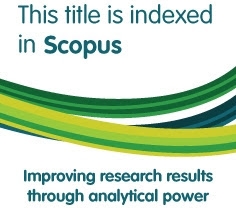Otoritas Keislaman di Indonesia: Sebuah Pembacaan Ulang
Abstract
Ismail Fajrie Alatas. 2021. What Is Religious Authority? Cultivating Islamic Communities in Indonesia. Princeton & Oxford: Princeton University Press.
This book discusses the authority of the source of knowledge of the saints in the archipelago. The stories and cases in this book show how the diversity and uniqueness of the previous saints crossed and merged into the complex culture of the archipelago while opening up new channels for transmitting the teachings of the Prophet. The main argument is the ethnographic and anthropological proof of how hard work of translation, mobilization, collaboration, and political competition are the key elements that shape the strength and diversity of the understanding of Islam in Indonesia. There is a close connection between the prophetic past and every life’s cultural particularity, which transcends regional boundaries. Thus, instead of reinforcing the view that Islam is a “finished religion” and monolithic, this finding shows us that Islam is a “religion that has always become” and pluralistic.
Keywords
Full Text:
PDFReferences
Alatas, Ismail Fajrie. 2019. “Dreaming Saints: Exploratory Authority and Islamic Praxes of History in Central Java.” Journal of the Royal Anthropological Institute 26(1): 1–19.
Arendt, Hannah. 1968. Between Past and Future: Eight Exercises in Po Liti Cal Thought. New York: Penguin Books.
Asad, Talal. 1986. “The Idea of an Anthropology of Islam.” In Occasional Papers Series, Washington, DC: Center for Con temporary Arab Studies, Georgetown University.
Bunt, Gary R. 2018. Hashtag Islam: How Cyber-Islamic Environments Are Transforming Religious Authority. Chapel Hill: The University of North Carolina Press.
Fazaeli, Roja. 2020. “Female Religious Authority in Muslim Majority Contexts: Past Examples and Modern State-Initiatives.” In Gender and Authority across Disciplines, Space and Time, eds. Bardazzi A and Bazzoni A. London: Palgrave Macmillan, 195–219.
Formichi, Chiara. 2020. Islam and Asia: A History. Cambridge: Cambridge University Press.
Harnadi, Dodik, Hotman Siahaan, and Masdar Hilmy. 2021. “Pesantren and the Preservation of Traditional Religious Authority in the Digital Age.” Masyarakat, Kebudayaan dan Politik 34(3): 272.
Hicks, Jacqueline. 2014. “Heresy and Authority: Understanding the Turn against Ahmadiyah in Indonesia.” South East Asia Research 22(3): 321–39.
Ismah, Nor. 2016. “Destabilising Male Domination: Building Community-Based Authority among Indonesian Female Ulama.” Asian Studies Review 40(4): 491–509.
Kloos, David. 2016. “The Salience of Gender: Female Islamic Authority in Aceh, Indonesia.” Asian Studies Review 40(4): 527–44.
Makin, Al. 2018. “‘Not a Religious State’: A Study of Three Indonesian Religious Leaders on the Relation of State and Religion.” Indonesia and the Malay World 46(135): 95–116.
Rumadi. 2012. “Islam Dan Otoritas Keagamaan.” Walisongo: Jurnal Penelitian Sosial Keagamaan 20(1): 25–54.
Saat, Noorshahril, and Ahmad Najib Burhani, eds. 2020. The New Santri: Challenges to Traditional Religious Authority in Indonesia. Singapore: ISEAS Yusuf Ishak Institute.
Weber, Max. 1968. “The Nature of Charismatic Authority and Its Routinization.” In On Charisma and Institution Building: Selected Papers, ed. S. N. Eisenstadt. Chicago: University of Chicago Press, 48–65.
DOI: https://doi.org/10.36712/sdi.v29i1.24649
Refbacks
- There are currently no refbacks.

All publication by Studia Islamika are licensed under a Creative Commons Attribution-NonCommercial 4.0 International License.
Studia Islamika, ISSN: 0215-0492, e-ISSN: 2355-6145
View My Stats

